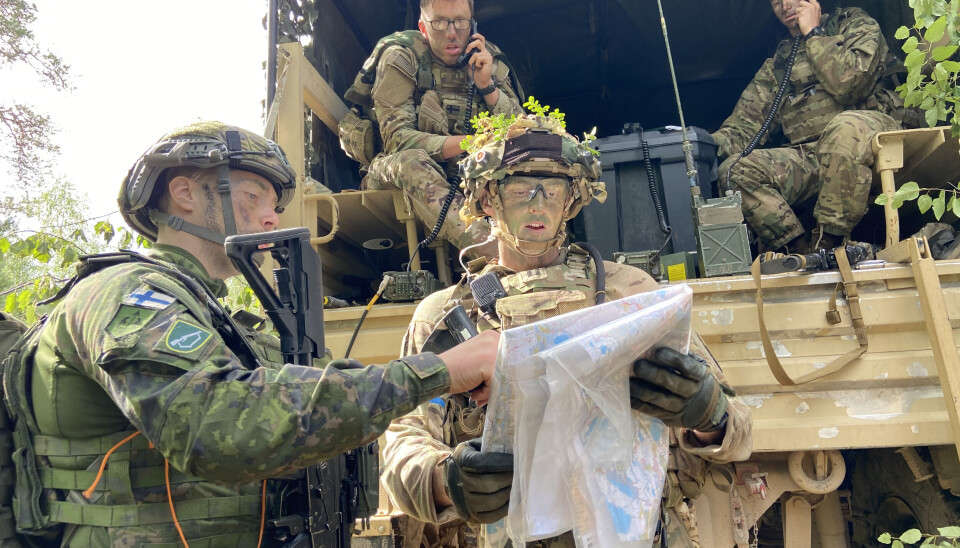
Nato troops in Finnish Lapland may increase Russian espionage efforts
A recent military intelligence report from the Finnish Defence Forces’ (FDF) said that Russia has special interests in monitoring the activities of international forces, as well as Nato’s setting up a base of operations in Finland.
That suggests that the deployment of Nato ground forces in Finnish Lapland will likely increase Russian espionage efforts.
Last week it was confirmed that Nato’s Forward Land Forces (FLF) will be stationed in Rovaniemi and Sodankylä.
The Finnish Security and Intelligence Service (Supo) has also reported that spies want to know what kind of equipment Nato plans on deploying in Finland. It said that Finland’s membership in the defence alliance has piqued the interest of intelligence agencies in Russia as well as China.
Supo told Yle that the agency has worked hard at protecting Finnish ports, as well as other critical infrastructure, in recent years.
For example, Supo began monitoring the Port of Kemi, where Nato troops and equipment have arrived for major international drills in Finnish Lapland. That northern Bothnian Bay port is also used by the Chinese shipping firm Cosco, whose vessels are subject to special monitoring, according to the port’s CEO, Markku Rautio.
Deputy commander of the Jaeger Brigade in Rovaniemi and Sodankylä, Colonel Ari Mure, would not comment on whether there have been any espionage attempts around garrisons in the region — for example with the use of drones or other suspicious activities.
He said the area is monitored in accordance with instructions from the General Staff.
“This includes monitoring and limiting intelligence and espionage efforts using the powers we have. I will not comment on the frequency of the incidents,” Mure said.
Regular sightings
Last month, the General Staff’s Brigadier GeneralPekka Turunen told Finnish news outlet MTV that drone reconnaissance flights are regularly detected near garrisons in Finland.
He said that such incidents occurred about once a month, but did not want to suggest who was behind them, MTV reported.
The FDF’s recent military intelligence report suggested that Russia was using increasingly diverse and improvised methods of intelligence gathering.
It also noted that pro-Russian social media forums have been used to recruit potential sources for espionage. Meanwhile, Supo has said that Russian spies may be posing as journalists or researchers, for example.
Given the relatively large number of visitors in Finnish Lapland, one might think that foreigners looking to gather information could blend in well in the area. However, Supo told Yle such scenarios had no bearing on their operations.
“We continuously monitor and prevent foreign spying in the real world and on computer networks. The tourism industry or large numbers of people do not affect the work of counterintelligence,” Supo told Yle.
According to Supo, Russia is particularly interested in intelligence about topics including support for Ukraine’s defence and circumventing international sanctions.
------------
This story is posted on the Barents Observer as part of Eye on the Arctic, a collaborative partnership between public and private circumpolar media organizations.















